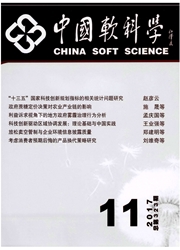

 中文摘要:
中文摘要:
从股权再融资中上市公司所面临的财务门槛约束的视角出发,本文运用双重倍差法考察了政府对于再融资的干预行为,并且重点分析是否存在外部政策变动对于企业盈余管理的诱导性,及其在配股制度变迁下这种诱导性的动态变化。研究发现:配股制度的财务门槛诱导的盈余管理行为降低了企业的长期绩效,随着财务门槛制度的放松,企业盈余管理行为明显减弱。上述结果说明了政府的干预行为扭曲资本市场的资源配置,非但不是一种有效的筛选优质公司进行再融资的机制,反而诱导了企业的盈余管理冲动,并在长期内损害了企业的价值,从而降低了整个社会资源配置的效率。
 英文摘要:
英文摘要:
Based on the financial threshold constraints imposed on Chinese listed companies during rights issue, this paper, by using difference-in-difference methods, tries to shed light upon the relationship between government intervention on refinancing and policy-induced earnings management, as well as the dynamic influences of transitions of rights issue system. We find that earnings management induced by financial threshold in rights issue reduces companies' long-run performance. Furthermore, with the loosening of financial threshold, the influence of the financial threshold constraints reduced significantly. Our results illustrate that government intervention distorts resource allocation in capital markets,which is not a good way for selecting superior firms. Instead, it induces earning management, reduces firm value, and reduces the efficiency of resource allocation.
 同期刊论文项目
同期刊论文项目
 同项目期刊论文
同项目期刊论文
 期刊信息
期刊信息
